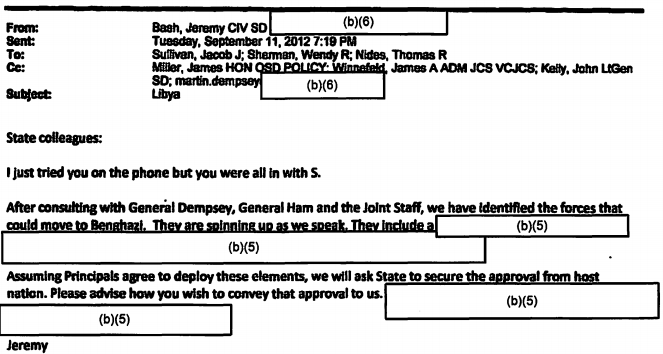Feds warn of bogus batch of Syrian passports amid report ISIS can print them
In part from FNC: Intelligence agencies have already flagged some 3,800 counterfeit Syrian passports, and will add data on another 10,000 fake Syrian passports recently intercepted in Bulgaria on the way to Germany. The sheer volume of fake passports flooding the market as refugees – or terrorists posing as refugees – pour into Europe has investigators on edge. The fake Syrian passports will add to an already challenging problem of vetting Syrian refugees, said Claude Arnold, a former DHS Investigations special agent in charge for Minneapolis and Los Angeles.
“In absence of specific intelligence that identifies the refugee as a member ISIS, we are not going to know they are a member of ISIS,” Arnold said. “We don’t have those boots on the ground in Syria, no one is really gathering that information, it’s a no mans land. So their application is based solely on story that person tells. It is dangerous, it is idiotic.”
Infographic: The Screening Process for Refugee Entry into the United States
Refugees undergo more rigorous screening than anyone else we allow into the United States. Here’s what the screening process looks like for them:

The Full Text of the Graphic:
The Screening Process for Refugee Entry Into the United States
Recurrent vetting: Throughout this process, pending applications continue to be checked against terrorist databases, to ensure new, relevant terrorism information has not come to light. If a match is found, that case is paused for further review. Applicants who continue to have no flags continue the process. If there is doubt about whether an applicant poses a security risk, they will not be admitted.
- Many refugee applicants identify themselves to the U.N. Refugee Agency, UNHCR. UNHCR, then:
- Collects identifying documents
- Performs initial assessment
- Collects biodata: name, address, birthday, place of birth, etc.
- Collects biometrics: iris scans (for Syrians, and other refugee populations in the Middle East)
- Interviews applicants to confirm refugee status and the need for resettlement
- Initial information checked again
- Only applicants who are strong candidates for resettlement move forward (less than 1% of global refugee population).
- Applicants are received by a federally-funded Resettlement Support Center (RSC):
- Collects identifying documents
- Creates an applicant file
- Compiles information to conduct biographic security checks
- Biographic security checks start with enhanced interagency security checks
Refugees are subject to the highest level of security checks of any category of traveler to the United States.
- U.S. security agencies screen the candidate, including:
- National Counterterrorism Center/Intelligence Community
- FBI
- Department of Homeland Security
- State Department
- The screening looks for indicators, like:
- Information that the individual is a security risk
- Connections to known bad actors
- Outstanding warrants/immigration or criminal violations
- DHS conducts an enhanced review of Syrian cases, which may be referred to USCIS Fraud Detection and National Security Directorate for review. Research that is used by the interviewing officer informs lines of question related to the applicant’s eligibility and credibility.
- U.S. security agencies screen the candidate, including:
- Department of Homeland Security (DHS)/USCIS interview:
- Interviews are conducted by USCIS Officers specially trained for interviews
- Fingerprints are collected and submitted (biometric check)
- Re-interviews can be conducted if fingerprint results or new information raises questions. If new biographic information is identified by USCIS at an interview, additional security checks on the information are conducted. USCIS may place a case on hold to do additional research or investigation. Otherwise, the process continues.
- Biometric security checks:
- Applicant’s fingerprints are taken by U.S. government employees
- Fingerprints are screened against the FBI’s biometric database.
- Fingerprints are screened against the DHS biometric database, containing watch-list information and previous immigration encounters in the U.S. and overseas.
- Fingerprints are screened against the U.S. Department of Defense biometric database, which includes fingerprint records captured in Iraq and other locations.
- If not already halted, this is the end point for cases with security concerns. Otherwise, the process continues.
- Applicant’s fingerprints are taken by U.S. government employees
- Medical check:
- The need for medical screening is determined
- This is the end point for cases denied due to medical reasons. Refugees may be provided medical treatment for communicable diseases such as tuberculosis.
- Cultural orientation and assignment to domestic resettlement locations:
- Applicants complete cultural orientation classes.
- An assessment is made by a U.S.-based non-governmental organization to determine the best resettlement location for the candidate(s). Considerations include:
- Family; candidates with family in a certain area may be placed in that area.
- Health; a candidate with asthma may be matched to certain regions.
- A location is chosen.
- Travel:
- International Organization for Migration books travel
- Prior to entry in the United States, applicants are subject to:
- Screening from the U.S. Customs and Border Protection’s National Targeting Center-Passenger
- The Transportation Security Administration’s Secure Flight Program
- This is the end point for some applicants. Applicants who have no flags continue the process.
- U.S. Arrival:
- All refugees are required to apply for a green card within a year of their arrival to the United States, which triggers:
- Another set of security procedures with the U.S. government.
- Refugees are woven into the rich fabric of American society!
- All refugees are required to apply for a green card within a year of their arrival to the United States, which triggers:
Amy Pope is Deputy Assistant to the President for Homeland Security

